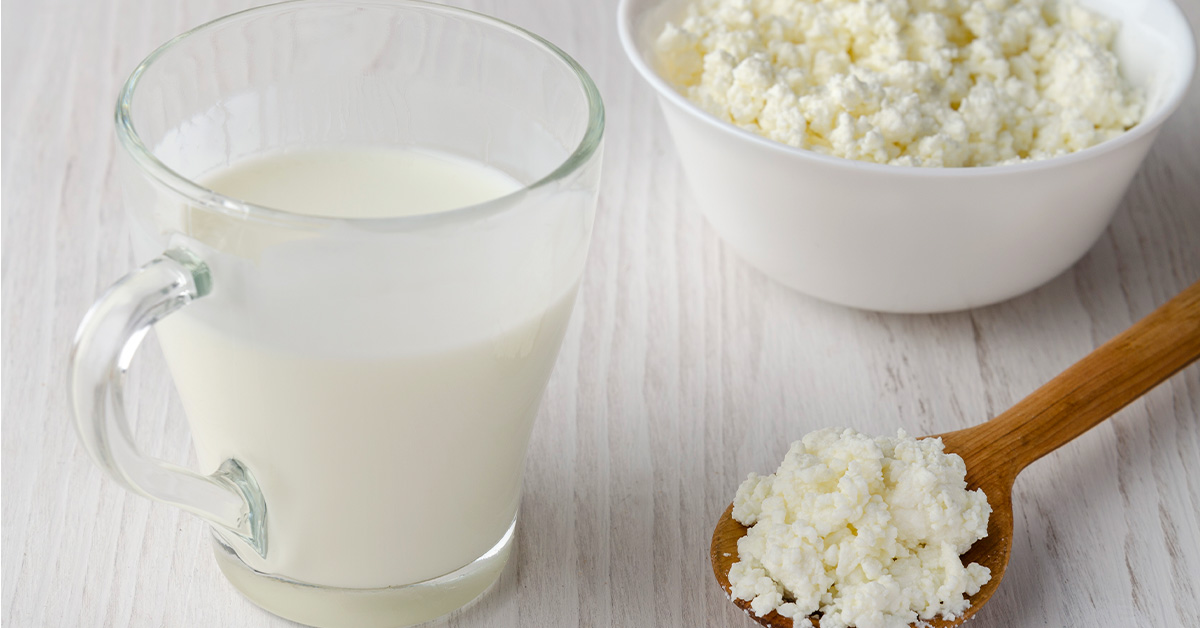WHAT HAPPENS TO OUR BODY WHEN WE CONSUME PROTEIN
The health benefits of it!

Kefir is made from any type of milk, whether cow, sheep, or goat, through lactic and alcoholic fermentation with the addition of kefir grains. These "grains" are cultures of fungi and lactic acid bacteria and resemble cauliflower.
Kefir originates from the Black Sea countries, particularly from the region of North Ossetia, between Russia and Georgia. The people of the Caucasus and the Middle East have been consuming it for many centuries.
Since the late 19th century, scientific studies have been published regarding its therapeutic and beneficial properties. Elie Metchnikoff, who was awarded the Nobel Prize in Medicine in 1908, attributed the longevity of the Balkan populations to their abundant consumption of fermented dairy products, such as kefir.
In fact, he referred to kefir as the "elixir of life." Initially, its use spread for the treatment of tuberculosis and intestinal and stomach diseases, and its consumption has increased over the years.
It has been found to have a high concentration of probiotics, is delicious, easily digestible, and contains many essential nutrients.
The term "probiotic" refers to foods containing microorganisms that are beneficial to health. Kefir has a taste similar to yogurt and an aroma resembling sour milk. It can be made into a delicious homemade cheese, but it can also be consumed with fruits, honey, or cereals.
The Health Benefits of Kefir:
Easily absorbed by the body
Contains more probiotics than yogurt
Cleanses the intestine
Provides beneficial bacteria and vitamins
High in protein
Improves bone health
Strengthens the immune system
Promotes a healthy digestive and gastrointestinal system
Encourages bowel movement and helps with constipation
Relieves intestinal disorders
Contributes to weight loss
Has strong antibacterial properties
A serving (250 ml) of kefir made from milk contains:
145 calories
8.3 g protein
7.5 g fat
11 g carbohydrates
333 mg calcium
28 mg magnesium
383 mg potassium
0.7 mcg vitamin B12
There are kefir variations that are not dairy-based and can be made with coconut water or other sweet liquids. It's possible to make lactose-free kefir using fruit juice.
Kefir is very easy to make at home by adding ½ teaspoon of kefir grains to 1 liter of milk.
Of course, you can also make kefir from soy milk, almond milk, or fruit juices. You can seal it airtight and let the mixture ferment for 24 hours.